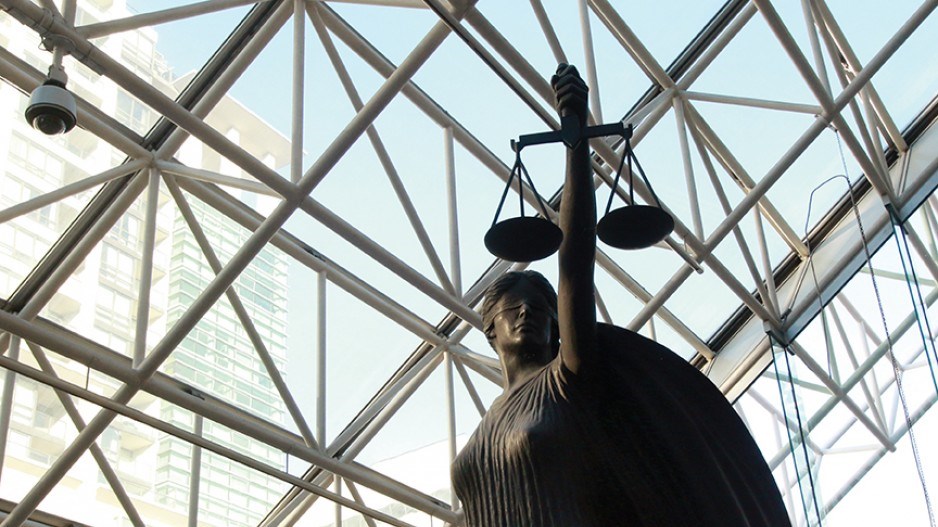The court battle over the potential extradition to the United States of Meng Wanzhou – now slated to extend into next spring – will be fought over three main points that the defence claims are an abuse of process by Canadian authorities in arresting the Huawei Technologies Co. Ltd. CFO.
That is where the battle lines are drawn, according to a proposed schedule largely agreed upon between the court, the prosecutors and the defendant in late June.
The schedule, re-established after an initial timeline ending in May 2021 was rejected by Associate Chief Justice Heather Holmes as too prolonged, now has the final hearings for committal to extradition slated to wrap up on April 30.
“You will also notice that in this schedule, we have attempted to identify more clearly what each step of the proceedings is about, and what each step means for the timing of decisions by the Court in order to ensure the schedule is achievable,” said Crown counsel Robert Frater in a June 19 letter to court. “The general theory underlying the schedule is that we will work throughout the summer and early fall to resolve all the necessary evidentiary issues, with final arguments on the issues taking place in early 2021.”
After Meng’s defence was dealt a blow earlier this summer when Holmes ruled that Canadian authorities satisfied the double-criminality standard for extradition – meaning that Meng’s conduct of fraud as alleged by the U.S. Department of Justice was deemed an arrestable offence in Canada – the Huawei executive’s lawyers will first focus on what they call the “second branch” of an alleged abuse of process by the RCMP and border agents in the “unlawful detention, search and interrogation at YVR” of Meng on December 1, 2018.
“Second Branch alleges a scheme by members [of] U.S. and Canadian law enforcement to compel evidence from the Applicant [Meng] for the benefit of the [U.S. authorities] in serious violation of her statutory and Charter rights,” Meng’s lawyers say in a memorandum filed on June 18. The document refers to the three-hour period during which the Huawei executive was held and questioned by Canada Border Services Agency (CBSA) agents at the airport before she was officially arrested by the RCMP.
The defence alleges that Canadian authorities illegally compelled Meng to surrender her electronic devices and passwords, which were then relayed to U.S. authorities.
The Crown, meanwhile, said no CBSA information has been accessed by U.S. investigators, adding that the border agents were within their jurisdiction by conducting an examination of Meng to determine whether she was allowed entry into Canada – and only afterwards would an arrest by the RCMP be possible.
That portion of the hearing is slated to touch on the Crown’s claims of privilege over documents, e-mail correspondence and other communications between U.S. and Canadian authorities prior to Meng’s arrival in Vancouver.
The defence argues that it needs the information to determine whether there was a co-ordinated conspiracy to organize Meng’s arrest.
That portion of the second branch argument will be the focal point of the hearings slated for August 17 to 21.
The defence will then pursue the “third branch” of alleged abuse of process from September 28 to October 2. That branch will challenge the validity of the criminal claims made by the U.S. Department of Justice against Meng in compelling Canadian authorities to arrest the Huawei executive on an extradition request.
“[Third] Branch is, fundamentally, an attack on the evidentiary foundation offered by the Requesting State to establish Sufficiency,” Meng’s defence lawyers argued in the memorandum.
Crown prosecutors have indicated they will challenge this argument in the late-September and October hearings.
After these steps, the final main legal showdown surrounding the entire abuse-of-process argument is scheduled to take place from February 16 to March 5. The Crown and the defence are expected to make their full case to Holmes on both of the previously mentioned branches, in addition to the high-profile “first branch” – statements made by U.S. President Donald Trump in late 2018 that he could “certainly intervene” in the extradition case if it could be used in trade negotiations with China.
“[First] Branch involves the unprecedented statements of the President of the U.S.A. that he would intervene in the Applicants case if it suited American economic and trade interests in dealing with China,” Meng’s lawyers said in the June memorandum.
If Holmes does not stay the case after those arguments, the final committal hearings will take place from April 26 to 30, although Meng would still have appeal options if she loses the extradition hearing.
A group of former Canadian diplomats and politicians have recently called for Ottawa to intervene and discontinue the extradition process to secure the release of Canadians Michael Kovrig and Michael Spavor, who were detained in China on espionage charges after Meng’s arrest.
But others have strongly opposed such views, saying a release of Meng outside of the court system would encourage Beijing to continue its “hostage-taking” strategy in response to foreign events it views as unfavourable to China.
Canadian Prime Minister Justin Trudeau has said he will not intervene in the Meng extradition process.




